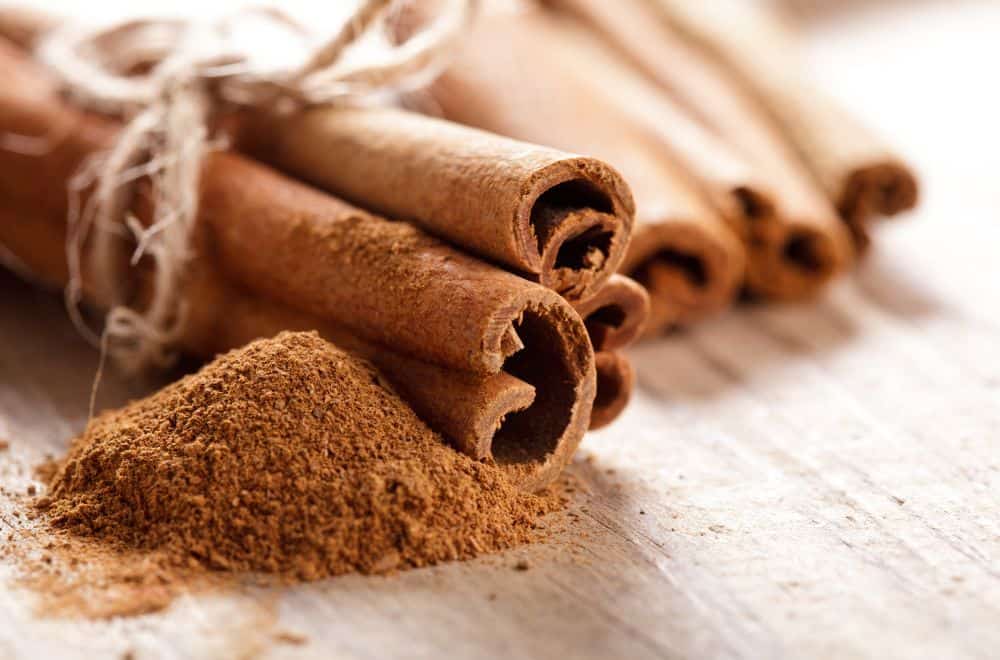Back in 2001, someone introduced the #CinnamonChallenge with both hilarious and disastrous results. It has flared on and off over the years and is still a sure way to make a viral video. But beyond propagating internet fame, what insects does cinnamon repel?
Well, cinnamon has lots of eugenol, a popular insect-repellent ingredient. The spicy heat and strong aroma of cinnamon can also disrupt insect pheromones, separating them from their fellow bugs and disrupting communication. So let’s look at some of the insects this can deter.
How to Use Cinnamon to Repel Insects
To make a cinnamon insect repellent, sprinkle the powder in target areas. Or mix it in a spray bottle with clove powder, rubbing alcohol, and water or carrier oil. Spritz around bug hotspots. You can also use cinnamon oil instead of cinnamon powder for your bug repellent.
Now let’s describe some of the specific pests that dislike cinnamon. For this list, we’re not focussing on the scientific definition of insects (i.e. three body parts, antennae, and six legs). Instead, we’ll look at bugs and pests in general, including arachnids, arthropods, and worms.
1. Ants
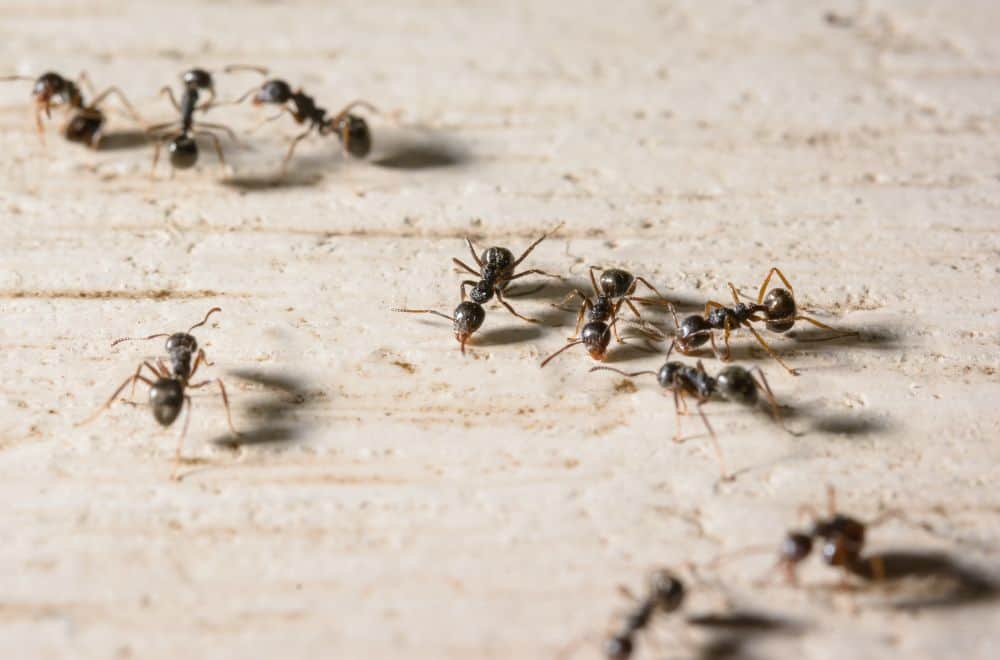
Apart from making food taste good and smell great, cinnamon also works against bacteria, arthritis, inflammation, diabetes, and even cancer. But why does cinnamon repel ants? It works in multiple ways. Cinnamon powder messes with the traction of those long ant trails.
The ants’ feet can’t grip the surface so they go away and hunt elsewhere. Also, the strong scent of cinnamon interrupts their pheromones so they can’t summon their comrades to the food source. Cinnamon powder, essential oil sprays, or infused cotton balls are all effective.
2. Cockroaches
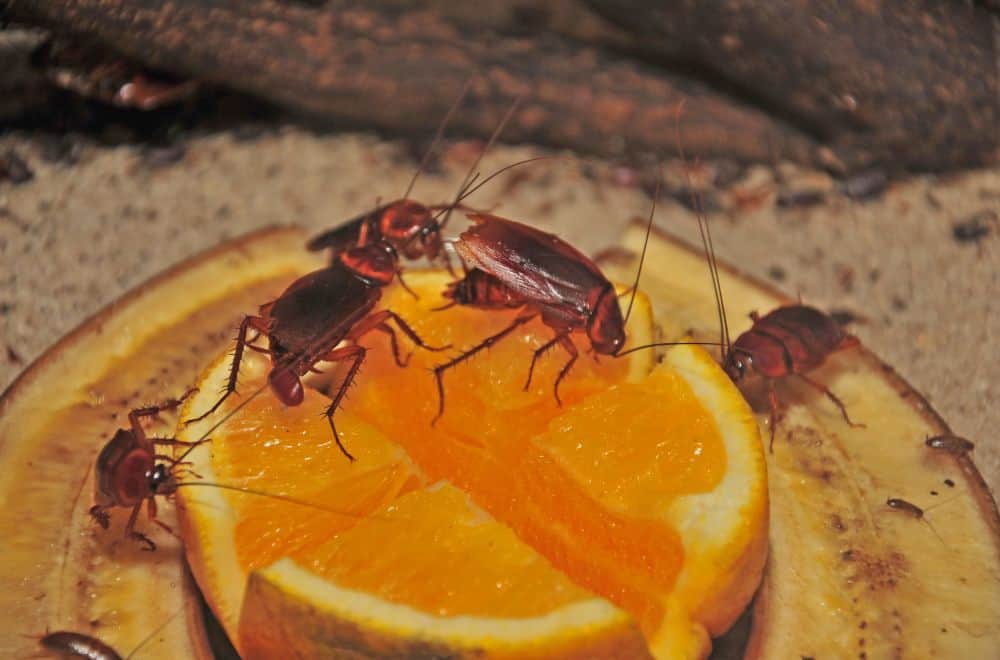
While cinnamon may be bad for bugs, it’s good for humans since it has iron, calcium, fiber, various vitamins, and manganese. It also contains carbs, fats, lipids, and proteins. All these can attract cockroaches, but the spicy aroma of the cinnamon itself will put them off.
Also, just like ants, cockroaches struggle to walk across fine cinnamon powder so it will trip them up and deter them. Spraying cockroaches with essential oil can potentially irritate and block their respiratory passages, though it’s not as effective as sprinkling cinnamon powder.
3. Spiders
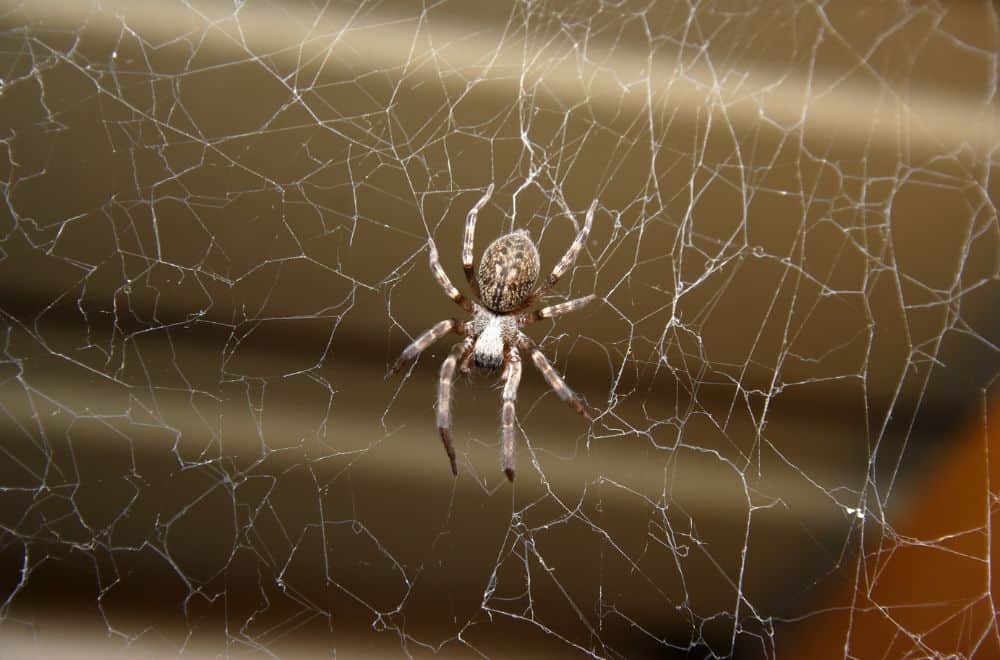
Cinnamon is said to improve memory and contain anti-oxidants so it’s good for both beauty and brains. Spiders aren’t a fan though, and neither are many of the bugs that make up their daily diet. Since cinnamon will repel flies and other bugs, spiders might starve if they stay.
But spiders themselves don’t like the smell of cinnamon. Manually remove their webs and sprinkle cinnamon powder on those sites to stop the spiders from rebuilding. You can also use cinnamon candles, diffusers, incense sticks, and potpourri dishes for aromatic attacks.
4. Fruit Flies
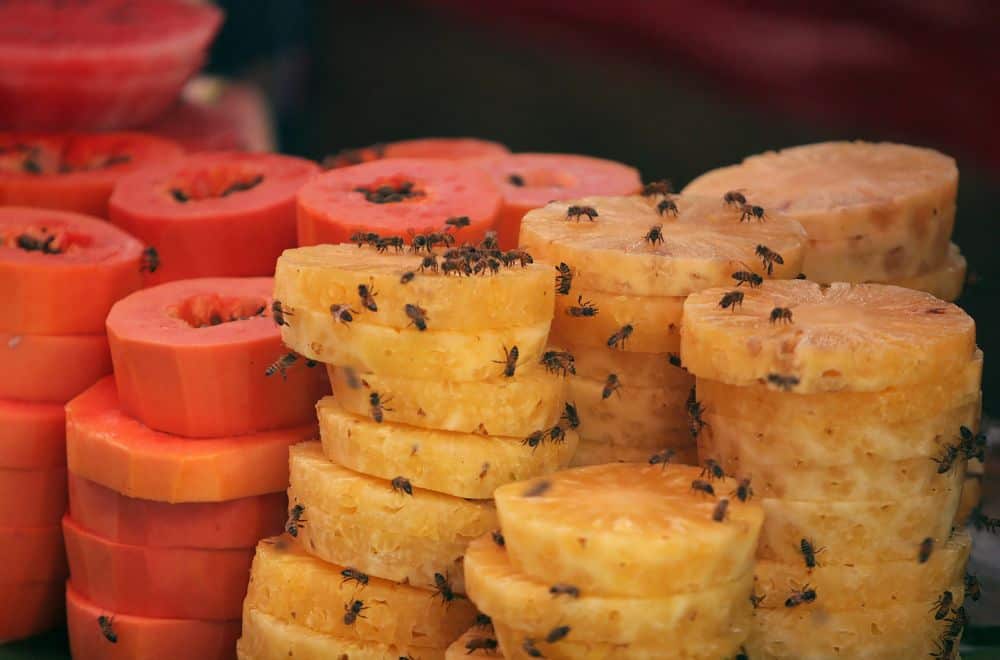
The part of the cinnamon that we use is the bark. At age two, cinnamon trees are pruned. And once the tree is three years old, its bark is harvested twice a year. The bark is always extracted after the rainy season. You need humid conditions to pull it off the tree efficiently.
Putting a few cinnamon sticks in a dish will send fruit flies away, so you can sneak some into your fruit bowls as a deterrent. Cinnamon-scented sprays can also hide the smell of ripening fruit. Try soaking pine cones in cinnamon oil and using them decoratively to repel fruit flies.
5. Wasps
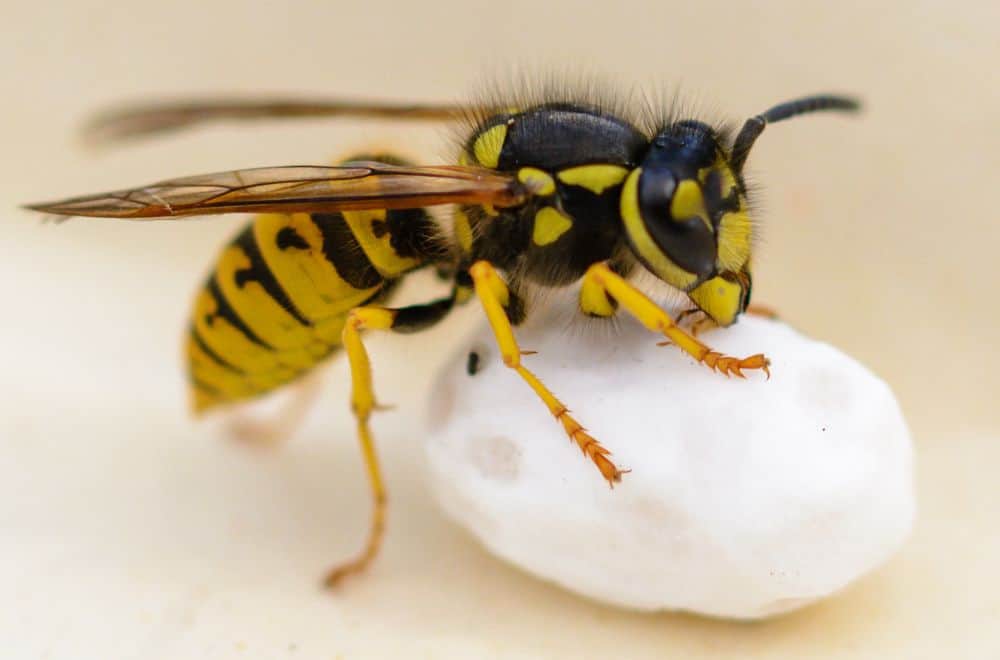
If a tree is too small or too big, the cinnamon won’t be good, so you need trees that are 1.2cm to 5cm thick. This bark can be ground into powder while leaves can be processed to extract essential oil. For the packaging, use water-proof polypropylene bags instead of polyethylene.
This is because polyethylene can soak up the scent and use up the flavor. As for wasps, they eat nectar so they’re scent-driven. And they don’t like how cinnamon smells, so you can burn cinnamon incense sticks, set up a cinnamon diffuser, or light cinnamon-flavored candles.
6. Weevils
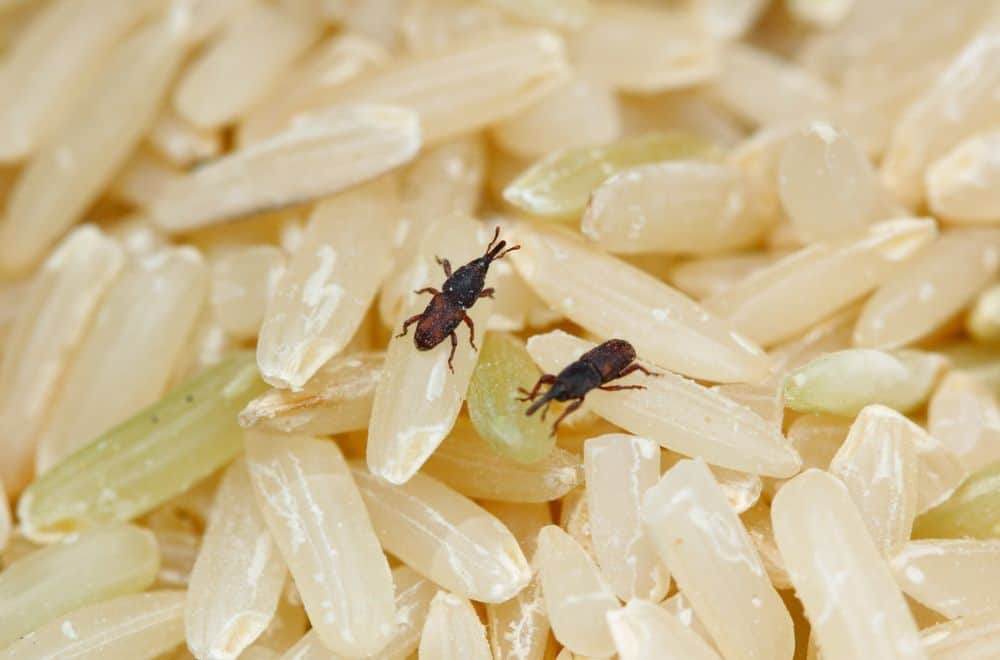
Cinnamon sticks smell great and are pleasantly chewy, so indigenous communities nibble them for toothaches and bad breath. Their intrinsic heat is also useful for digestion issues and cold symptoms, so cinnamon sticks are often steeped in soups, herbal tonics, and tea.
While cinnamon won’t kill beetles and bugs, they dislike the smell. The powder stops them from clinging to seeds, so it works well against lots of weevil species including flour, wheat, bean, maize, and oak nut weevil breeds. Put cinnamon leaves in the bags of grains and flour.
7. Silverfish
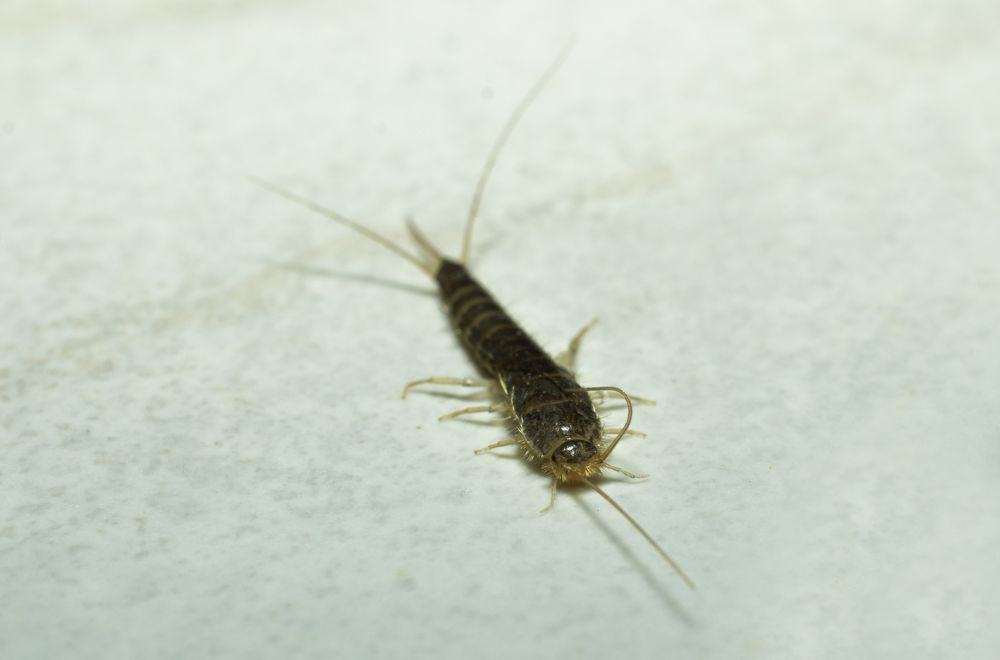
Some say cinnamon is a form of herbal Viagra, while others use its ability to reduce blood sugar as a diabetes treatment option. Its anti-fungal, anti-bacterial, anti-viral, and anti-microbial properties make it nature’s top preservative. It works against mold infestations.
This makes cinnamon an effective tool to fight silverfish since they live and feed on mold. Sprinkle cinnamon powder on your books and newspapers to repel silverfish. Also, dip a cotton ball in cinnamon oil and wipe down the areas where the silverfish typically hang out.
8. Mosquitoes
We all agree that cinnamon is magic. But as the #CinnamonChallenge proved, it can be harmful in large doses. Side effects include coughing, sneezing, eye irritation, breathing problems, loose bowels, and dry respiratory passages. This is partly how it repels insects.
Sprinkling cinnamon oil into drains and pools of still water can suffocate the larvae and pupae of mosquitoes, killing them before they grow into adult bloodsuckers. The scent of cinnamon will also repel any mating males or egg-laying females from that breeding spot.
9. Bedbugs
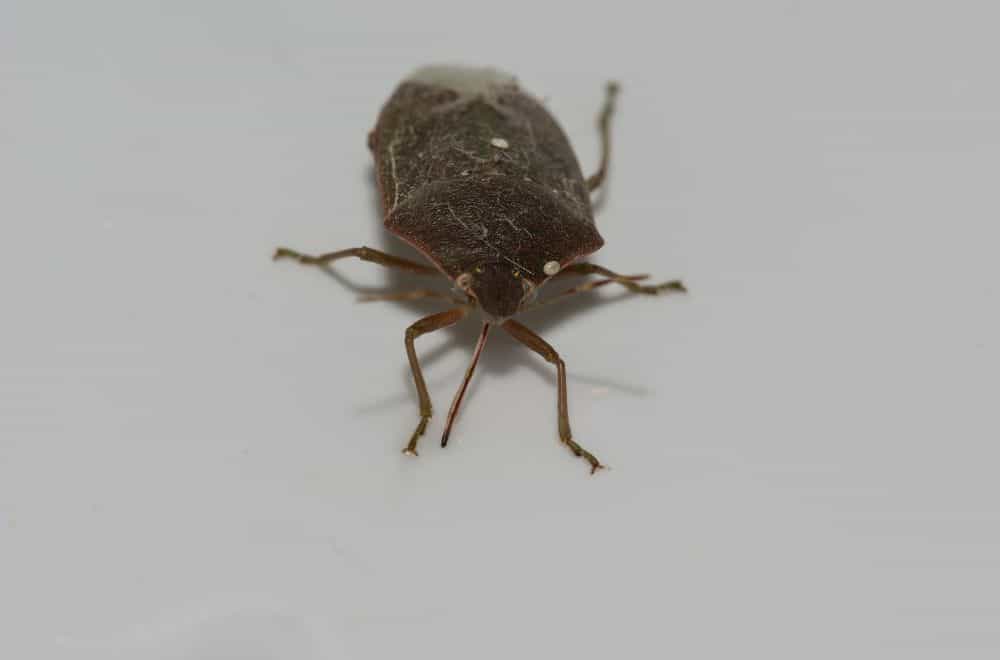
In humans, excessive cinnamon inhalation can trigger pneumonia and cause collapsed lungs. In bedbugs, they’re more of a repellent than a suffocant. In the dark, bedbugs can easily sniff you out through your body heat, bio-signature, and the carbon dioxide that you breathe out.
So while cinnamon can camouflage you a little, it won’t put bedbugs off the scent. That said, you can sprinkle cinnamon powder in bedbug hotspots and they’ll soon migrate. But you’ll still have to starve them out, which can take ages since they can go 400 days without blood!
10. Houseflies
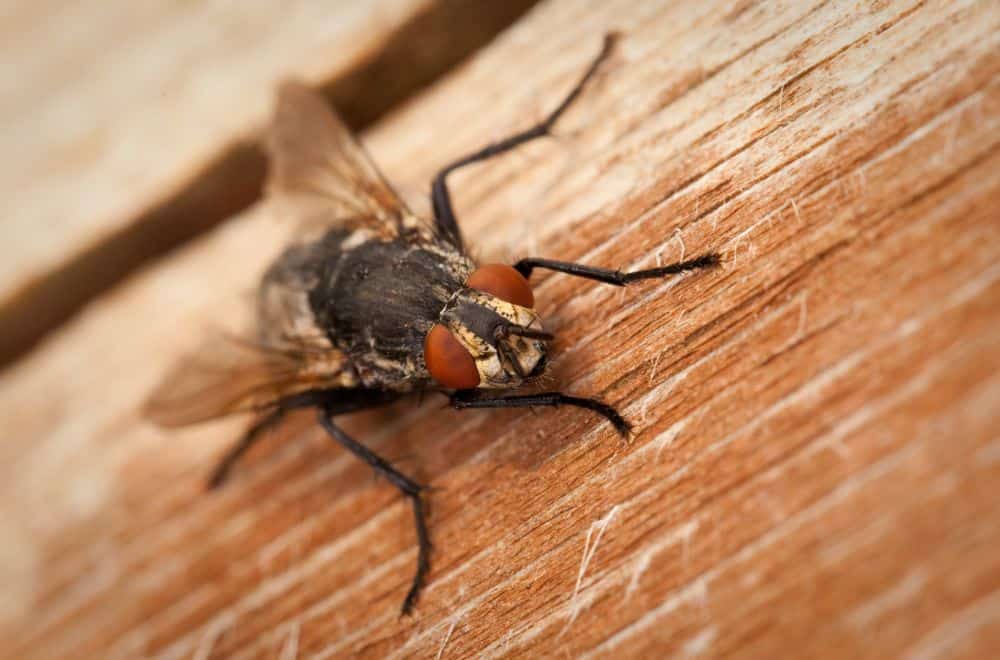
Flies are attracted by the smell of rotting garbage and over-ripe food. Cinnamon is a natural preservative so it can slow the process of food spoilage. But it can also mask the scent of food going bad. It helps that houseflies hate that distinctly spicy cinnamon aroma to begin with.
Some of the chemicals in cinnamon are directly harmful to flies as well. Remember, these noisy fliers are shuttles for all sorts of viruses and bacteria. And while the cinnamon will scare the flies away, its internal elements can kill those stowaway microbes on the fly’s body.
11. Onion Thrips
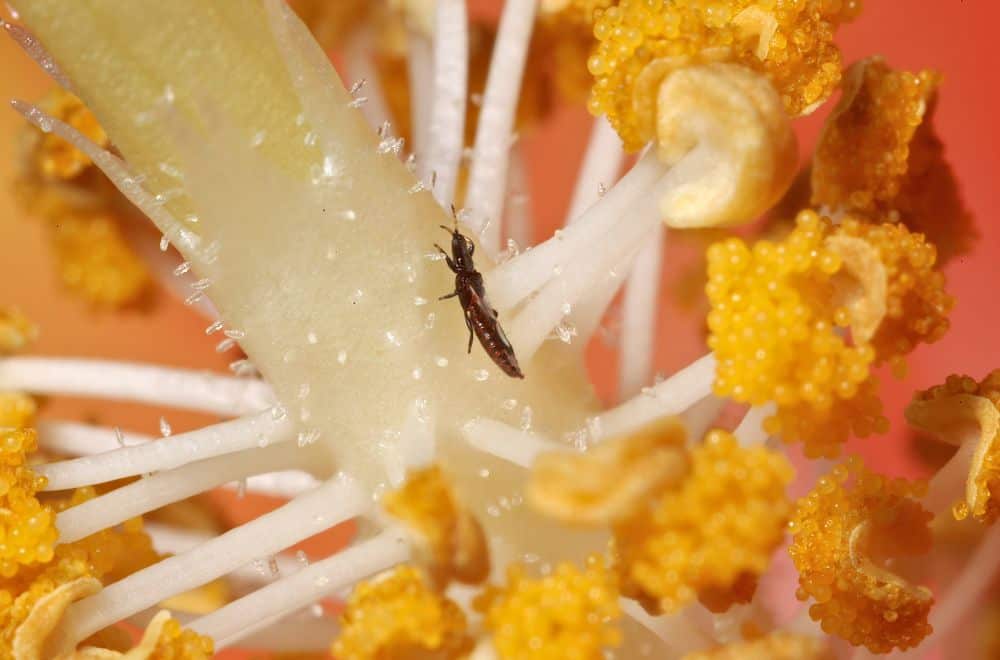
Thrips are sometimes called thunder flies or thunder bugs or storm bugs because they often appear before thunderstorms. These insects are also named for the produce they infest, so you’ll hear about corn, pear, or onion thrips. They might also be called freckle flies or lice.
Thrips are mostly outdoor pests, but they can follow your food in as it comes from the farm or grocery store. And unlike many household pests that are simply repelled by cinnamon, thrips will die if they ingest it. Use powder, essential oil, or sprays on soil, leaves, and food.
12. Peach-Potato Aphids
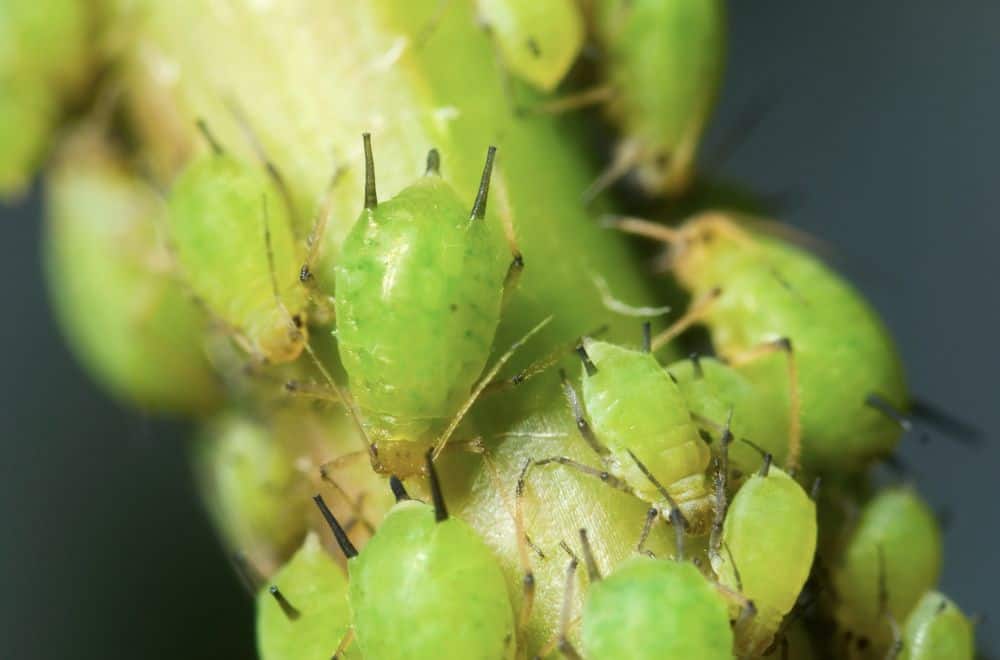
Aphids are small, often light-green bugs that feed on sap from leaves and stems. They don’t do much harm in small numbers. But if you get a larger infestation, the leaves of your plants will curl and turn yellow, meaning your plants can’t photosynthesize and make enough food.
On flowers, this can become an eyesore, but in food plants like peaches and potatoes, aphids can reduce your harvest volumes. You can place cinnamon sticks in the soil to repel bugs, but it’s smarter to spray diluted cinnamon oil into the soil and lightly coat your leaves.
13. Scorpions
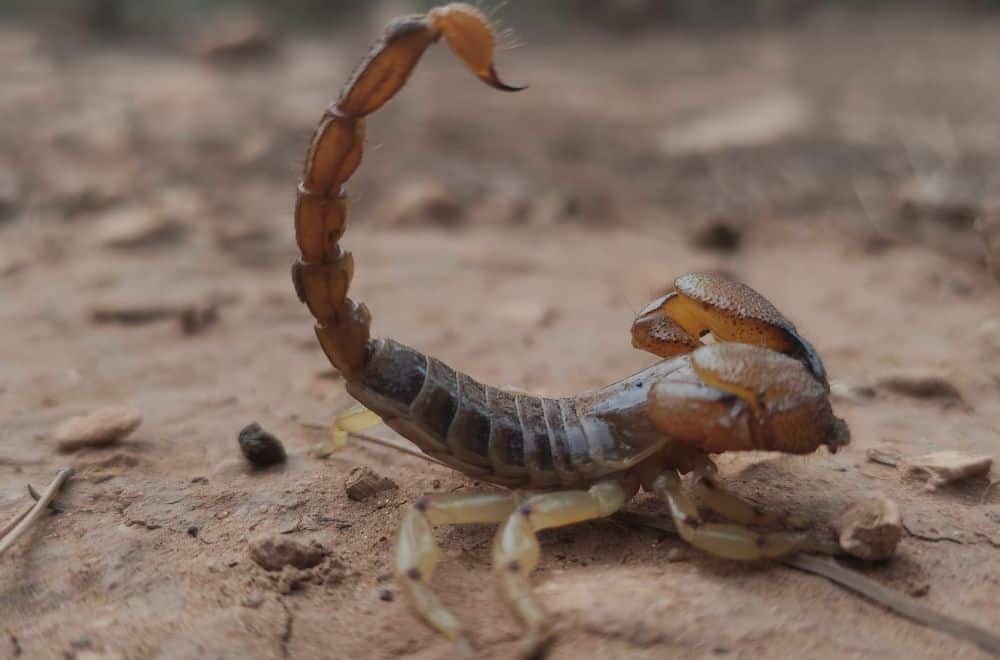
Once you see a scorpion in the house, you’re already in trouble because their tempers are legendary! Plus, with those snappy pincers, you’re unlikely to safely get it back outdoors. And that’s assuming their scary claws and appendages don’t get you shivering and screaming!
The surest bet is to stop them from coming indoors in the first place. Scorpions hate the smell of cinnamon so you can scour the house to identify their entry spots then wipe them down with a cotton ball dipped in cinnamon oil. You can also place cinnamon diffusers around the house.
14. Slugs
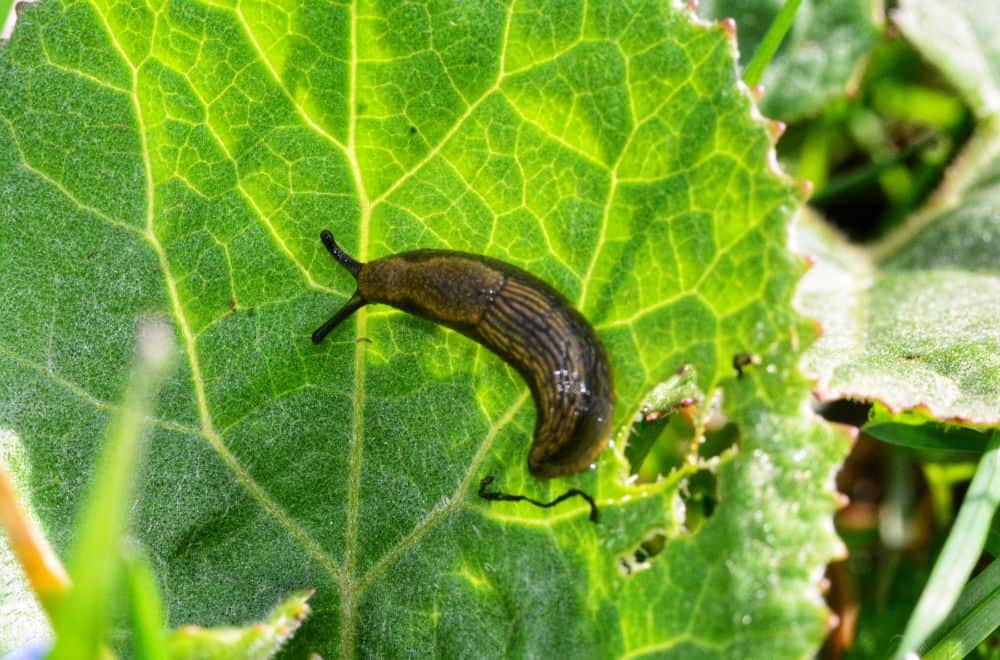
We don’t like slugs much because they’re slimy and icky. And lots of us learned that we can salt them into mush. But beyond primal abhorrence, slugs can be surprisingly destructive. Did you know they’ll eat anything? Pet food, exposed meat, leafy plants, and rotting trash?
In the wild, they’re lovely garbage collectors, but in your home, they leave nasty trails and are largely repulsive, so use cinnamon oil to keep them away – they hate the smell. You can also sprinkle cinnamon powder along their preferred paths since they can’t easily crawl across it.
15. Moths
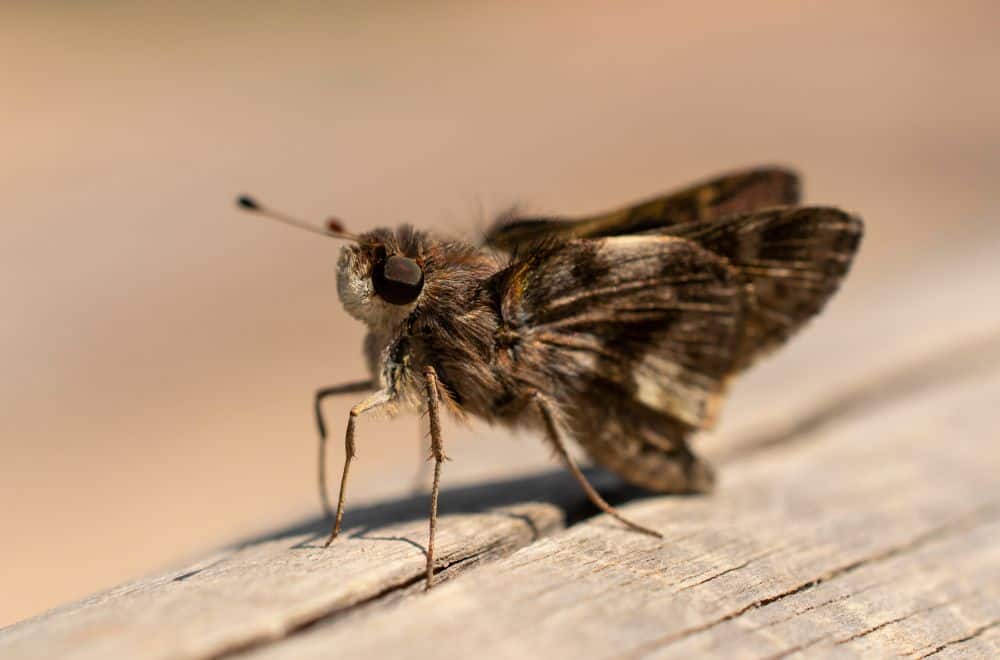
While lots of us love butterflies, we’re not as big on moths. Their caterpillars (larvae) tend to chew our books and clothes, leaving nasty fluffy powder over everything. Luckily, cinnamon will keep them away and leave our spaces smelling great – but only if you enjoy that aroma.
Diamondback and box tree moths are especially antsy around cinnamon, but most moth species will stay away from the scent if they can. Place a bowl of fresh cinnamon sticks in a strategic spot, especially for closets. It’s much safer than flammable incense or candles.
What Other Pests Does Cinnamon Repel?
Apart from insects, lice, and mites, cinnamon repels rodents and other unwanted guests including rats, mice, squirrels, raccoons, snakes, moles, rabbits, and weasels. It can also kill harmful fungi that can cause diseases in certain plants, so it’s a useful tool for any garden.
The fungi are destroyed by cinnamaldehyde, the component that gives cinnamon its warm, spicy kick. Cinnamon comes in four main species with different amounts of cinnamaldehyde. Do you know any other insects that cinnamon repels? Tell us about them in the comments!
